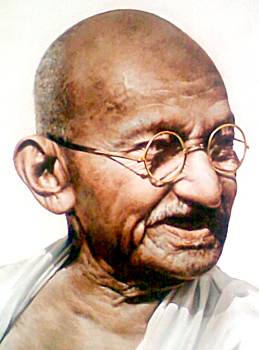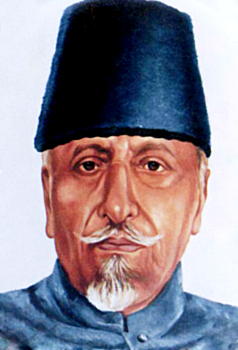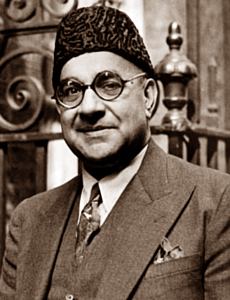 The breakdown of the Simla Conference resulted in an all-encompassing change in the political outlook of India. The most imperative result that brought about a transformation in the society was the decision of Provincial Elections during British India, 1946. The general election in Britain and the surrender of Japan effected India to a great deal. The Labour Party secured a clear majority in the House of Commons in the election in Britain. The Congress members congratulated and supported the Labour Party although there was less enthusiasm among members of the Muslim League. After the election, the new British Government was welcomed in India with goodwill. After the end of the Second World War, it became urgent to find a permanent and lasting solution to India`s constitutional problem.
The breakdown of the Simla Conference resulted in an all-encompassing change in the political outlook of India. The most imperative result that brought about a transformation in the society was the decision of Provincial Elections during British India, 1946. The general election in Britain and the surrender of Japan effected India to a great deal. The Labour Party secured a clear majority in the House of Commons in the election in Britain. The Congress members congratulated and supported the Labour Party although there was less enthusiasm among members of the Muslim League. After the election, the new British Government was welcomed in India with goodwill. After the end of the Second World War, it became urgent to find a permanent and lasting solution to India`s constitutional problem.
Sir Stafford Cripps came to India, after the elections in Britain and was concerned regarding a permanent settlement in the country. He wanted to hasten with the major issue relating to Pakistan. Sir Stafford advocated that new elections should be held in India and that, with the representatives so elected, a constituent assembly should be formed to work out a new free self-governing constitution for British India. The Muslim League members supported the plan as it fitted with the view of their Working Committee. The Congress members were in favour of a general Provincial election. But according to them, the elections would not be fair unless civil liberties were restored.
Lord Wavell, the then Indian Viceroy, was of the view that the Central and Provincial Legislature elections would be held as soon as possible in India. This provincial election during British India would help in the setting up of a constitution-making body. He also announced that after the elections, the Viceroy would set an Executive Council that would have the support of the main Indian political parties. Both the Muslim League and the Congress opposed the proposal. During the first week of August the Viceroy held consultations with the provincial Governors, who agreed that the elections should be held as soon as possible.
On 21st August 1945, two announcements were made by the Viceroy: firstly, that the elections to the central and provincial Assemblies would be held in the winter of 1945, and secondly, the Viceroy would pay a visit to England for consultation with His Majesty`s Government. On 24th August Lord Wavell, thus, went to London. The Viceroy had long discussions with the Secretary of State and the India Committee of the Cabinet. The procedure for reaching a final constitutional settlement, the British Government preferred the Cripps proposals for `provincial option`.
 The provincial Assemblies would have to provide the starting point for the creation of a body to frame the future constitution. On the 19th September, Lord Wavell announced that His Majesty`s Government was determined to promote in union with the leaders of Indian opinion the early realisation of full self-government in India. According to His Majesty`s Government, during these preparatory stages, the Government of India should proceed with its present work, and urgent economic and social problems must be dealt with. Provincial Elections were necessary because after the elections, discussions would be held with the Indian leaders and with the representatives of the Indian States to determine the form in which way the constitution-making body should take. Thus, the viceroy appealed to the Indians to make a united effort to develop a constitution that would be accepted as fair by all parties and interests in India. However, the reactions of the two main parties were not favourable in this matter.
The provincial Assemblies would have to provide the starting point for the creation of a body to frame the future constitution. On the 19th September, Lord Wavell announced that His Majesty`s Government was determined to promote in union with the leaders of Indian opinion the early realisation of full self-government in India. According to His Majesty`s Government, during these preparatory stages, the Government of India should proceed with its present work, and urgent economic and social problems must be dealt with. Provincial Elections were necessary because after the elections, discussions would be held with the Indian leaders and with the representatives of the Indian States to determine the form in which way the constitution-making body should take. Thus, the viceroy appealed to the Indians to make a united effort to develop a constitution that would be accepted as fair by all parties and interests in India. However, the reactions of the two main parties were not favourable in this matter.
Jinnah and Liaqat Ali Khan declared that Muslims were not ready to accept any settlement unless a separate homeland for them was formed. The All India Congress Committee characterised the proposal of the Viceroy, as `vague, inadequate and unsatisfactory` because it had not addressed the issue of independence. Yet, the two parties launched huge election campaigns. According to both the major parties of the country, this provincial election and its results would play a crucial role for the future of India and also in determining the position of the two parties. The League wanted to sweep the Muslim constituencies to prove that they were the sole representatives of the Muslims of Sub-continent, while Congress wanted to prove that irrespective of religion, they represent all the Indians. The Government of India and the provincial governments started preparations for holding the Provincial elections. The decision was taken that elections to the central legislature would be held first; then elections to the provincial legislatures where ministries were functioning, and lastly, elections to the legislatures in provinces where ministries were not functioning would be held.
Both the Muslim League and the Congress propagated opposite slogans during their campaigns. The Muslim League announced that it would fight the elections on the issue of Pakistan and the title of the League to represent all the Muslims. Jinnah and other League members demanded that the provinces of the Punjab, Sind, the North-West Frontier Province, Baluchistan, Bengal and Assam should be formed into a separate sovereign State to be known as Pakistan. On the other hand, the Congress stood for United India. The Congress tried to get the support of all the provincial and central Muslim parties who had some differences with the League, and backed them in the elections.
Abul Kalam Azad approached Gandhiji with a plan for a communal settlement towards the end of August 1945. In addition to that, he pointed out that partition was against the interests of the Muslims themselves. He suggested to the Congress that the future constitution of India must be federal with fully autonomous units. There must be joint electorates both at the Centre and in the provinces, with reservation of seats. He even opined that there must be parity of Hindus and Muslims in the central legislature and the central executive till such time as communal suspicion disappeared and parties were formed on economic and political lines. However, the Congress itself faced considerable organizational difficulties in preparing for the elections. Many congress leaders were imprisoned and party funds and property had in many cases been isolated. Another major problem that posed a serious threat during the period was the Indian National Army members being deported to India at the end of the war. The INA officers were put to public trial in Delhi and an Ordinance was promulgated setting up a Military Tribunal for the purpose.
The first among the accused included a Hindu, a Muslim and a Sikh and the trial took place at the Red Fort. The Congress took up the case of the accused and set up a panel of defence under Bhulabhai Desai, which included Sir Tej Bahadur Sapru and Nehru. Demonstrations were held in different places, like Madurai, Bombay, Calcutta, Lucknow and Lahore. The Muslim League also decided to associate itself with the defence of the I.N.A. accused and thus the agitation spread all over the country. The holding of the I.N.A. trials in Delhi resulted in a political unrest in the country. On the other hand, these trials provided scope for propaganda against the Government, which the two parties used to full advantage. A great deal of political heat had called forth the way in which the I.N.A. trials have been represented to the public.

Meanwhile the elections to the central Legislative Assembly had been held and the complete results became available towards the end of December 1945. The Congress won with a huge majority and was able to sweep the polls for the non-Muslim seats. The Leagues managed to win all the 30 seats reserved for the Muslims. The results of the provincial election held in early 1946 were not different. Congress won most of the non-Muslim seats while Muslim League captured approximately 95 percent of the Muslim seats. Both parties celebrated their victories and the Central Election Board of the Congress on 6 January 1946 declared that the Congress was the most representative organization in the country. Jinnah made it clear that he would not take any part in an interim Government without a prior declaration accepting the principle of Pakistan and parity with all other parties. He insisted on making of two constitution bodies.
Another serious and important incident that took place during the time of the provincial election was the revolt of certain R.I.N. personnel, which was followed by grave civil turmoil in Bombay. It started on 18 February and the Signal School in Bombay went on a hunger-strike in protest against what their Central Strike Committee described as `untold hardships regarding pay and food and the most outrageous racial discrimination,` They were joined later by ratings from other naval establishments. The Army and the Air Force were not unaffected.
The provincial elections were held first in the provinces of Assam, Sind, the North-West Frontier Province and the Punjab. In Assam, the Congress won all the General territorial seats and the League almost all the Muslim seats. The Congress Party captured fifty-eight out of 108 seats, was commissioned to form the Government and Gopinath Bardolai became the premier. The ministry consisted of five Hindus, one Indian Christian and one Nationalist Muslim. Two seats were offered to the Muslim League on condition that it would agree to work the Congress parliamentary Programme, but the League rejected the offer because of the inclusion of a non-League Muslim in the ministry. Another important situation arose in Sind. The Muslim League captured twenty-seven seats, and one independent Muslim joined the party after the elections. The Nationalist Muslims won three seats. The Congress secured twenty-one and, of the remaining seats, three went to Europeans and one to an independent Labour candidate.
After the Provincial elections of 1946, the Syed group formed a coalition with the Congress and the Nationalist Muslims that resulted in the position of two parties with twenty-eight members each. Sir Ghulam Hussain, leader of the Muslim leader of the Muslim But the offer to form a ministry was made by the Governor to, League Party. This was regarded as an act of partisanship and was greatly resented by Congress and nationalist opinion. Sir Ghulam Hussain Hidayatullah offered two Hindu seats to the Congress Party, but the latter insisted that the offer should be addressed to Syed, the head of the coalition. As it was an article of faith with the Muslim League not to have dealings with non-League Muslims, the matter was not proceeded with.



















